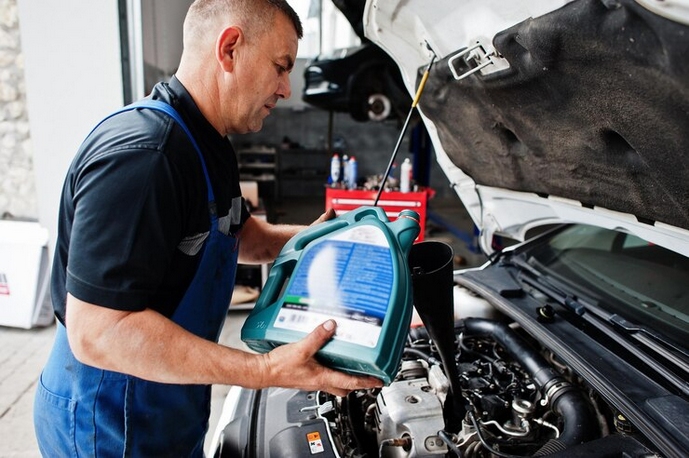When it comes to diesel car repair, understanding the complexities of diesel engines is essential for both vehicle owners and technicians. Diesel engines, known for their robustness and longevity, require specialized knowledge and skills for effective maintenance and repair. This guide provides valuable insights and practical tips to ensure your diesel engine remains in top condition, optimizing performance and reliability.
Understanding Diesel Engines
Diesel engines operate differently than their gasoline counterparts, primarily due to the fuel combustion process. In a diesel engine, air is compressed to a high degree, raising its temperature before the fuel is injected. This process results in a more efficient fuel burn, leading to better fuel economy and torque. However, the intricacies of this system mean that any issues can severely impact performance.
Common Problems with Diesel Engines
Owners of diesel vehicles often encounter specific issues that may require professional attention. Some of the most prevalent problems include:
- Fuel System Issues: Contaminated fuel can lead to clogged filters and injectors, causing poor engine performance. Regularly changing the fuel filter and ensuring the quality of diesel fuel is crucial.
- Turbocharger Failures: The turbocharger enhances engine performance by forcing more air into the combustion chamber. If it malfunctions, you may experience a significant loss of power and increased emissions.
- EGR System Problems: Exhaust Gas Recirculation (EGR) valves can become clogged with soot over time, leading to reduced engine efficiency and increased emissions. Cleaning or replacing the EGR valve as part of routine maintenance can prevent this issue.
- Oil Leaks: Diesel engines are prone to oil leaks due to the high pressure within the system. Regularly checking oil levels and inspecting for leaks is essential to prevent damage.
Essential Maintenance Tasks for Diesel Engines
To avoid costly repairs and extend the lifespan of your diesel engine, implementing a regular maintenance routine is vital. Here are some essential tasks that should be part of your diesel car repair regimen:
Regular Oil Changes
Oil changes are crucial in maintaining the health of your diesel engine. Diesel engines generate more soot and contaminants compared to gasoline engines, which means they require more frequent oil changes. It’s advisable to change the oil every 5,000 to 7,500 miles, depending on your driving habits and the manufacturer’s recommendations. Using high-quality diesel engine oil can enhance performance and prolong the engine’s life.
Fuel Filter Replacement
The fuel filter plays a critical role in ensuring that clean fuel reaches your engine. Clogged filters can lead to inadequate fuel supply, resulting in rough idling and decreased power. It’s recommended to replace the fuel filter every 10,000 to 15,000 miles, or as specified in your vehicle’s manual.
Air Filter Maintenance
The air filter is another component that can significantly affect engine performance. A clean air filter ensures optimal airflow to the engine, improving fuel efficiency and overall performance. Inspect the air filter regularly and replace it if it appears dirty or clogged.
Cooling System Checks
The cooling system is essential for preventing engine overheating. Regularly check coolant levels and inspect hoses and connections for leaks or wear. Flushing the cooling system and replacing the coolant as recommended can help maintain optimal engine temperatures and performance.
Troubleshooting Diesel Engine Problems
Even with regular maintenance, issues may arise. Knowing how to troubleshoot common diesel engine problems can save time and money during repairs.
Diagnosing a Rough Idle
A rough idle in a diesel engine can be indicative of several issues, including fuel delivery problems or injector issues. Start by checking the fuel filter and replacing it if necessary. If the problem persists, inspect the injectors for clogs or leaks.
Dealing with Engine Overheating
If your diesel engine is overheating, it could be due to a malfunctioning thermostat, a clogged radiator, or low coolant levels. Start by checking the coolant levels and inspecting for leaks. If everything appears normal, you may need to test the thermostat and radiator for proper function.
Addressing Power Loss
A significant loss of power can stem from several sources, including turbocharger failures, fuel system issues, or exhaust blockages. Begin by inspecting the turbocharger for any signs of damage or wear. Next, check the fuel system for clogs or leaks, and ensure that the exhaust system is free of obstructions.
When to Seek Professional Help
While many diesel car repair tasks can be undertaken by the owner, some issues require the expertise of a professional technician. If you encounter persistent problems, such as unusual noises, persistent warning lights, or significant performance drops, it’s best to consult with a specialized diesel repair facility.
At California Coast Auto Repair, our technicians have over 20 years of experience working on Cummins, PowerStroke, and Duramax engines. We offer a comprehensive range of diesel services, from routine maintenance to complete engine replacements. Trusting your vehicle to qualified professionals ensures that repairs are carried out effectively, minimizing the risk of future issues.
Conclusion
In conclusion, understanding the nuances of diesel car repair is essential for maximizing the performance and longevity of your vehicle. Regular maintenance, awareness of common problems, and knowing when to seek professional help are critical components of diesel engine care. By following the tips and guidelines outlined in this guide, you can ensure that your diesel engine remains reliable and efficient for years to come. At California Coast Auto Repair, we are committed to providing top-notch diesel services that cater to your specific needs, ensuring your vehicle runs smoothly and efficiently.


